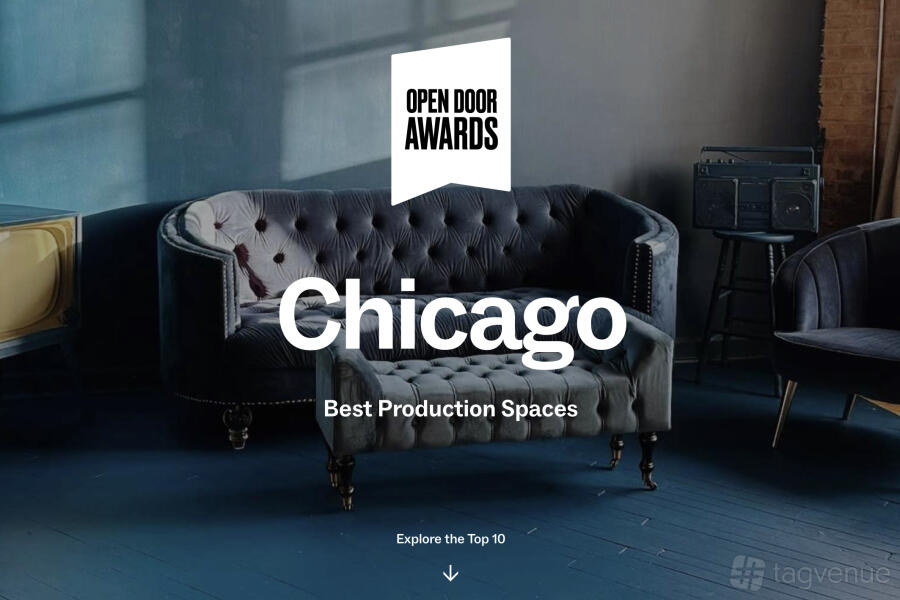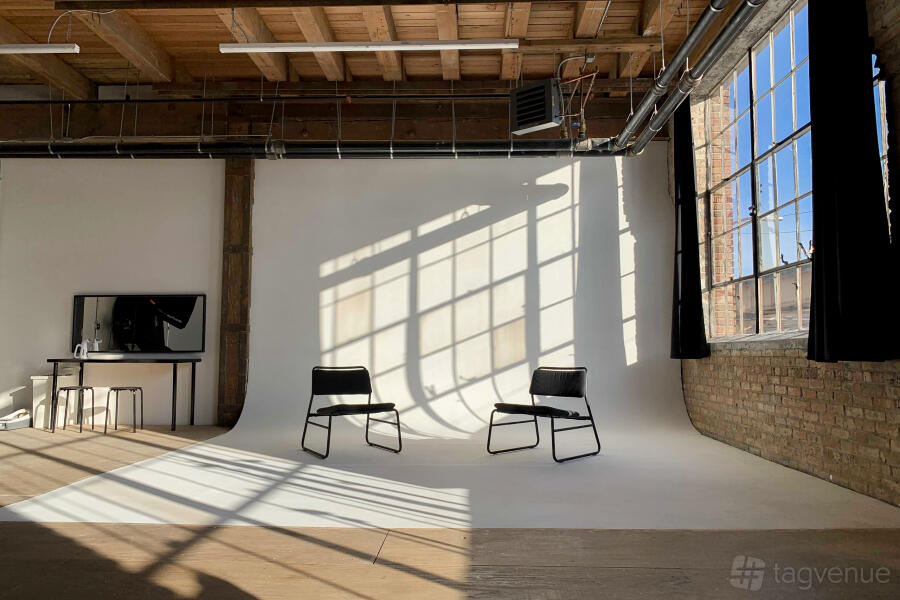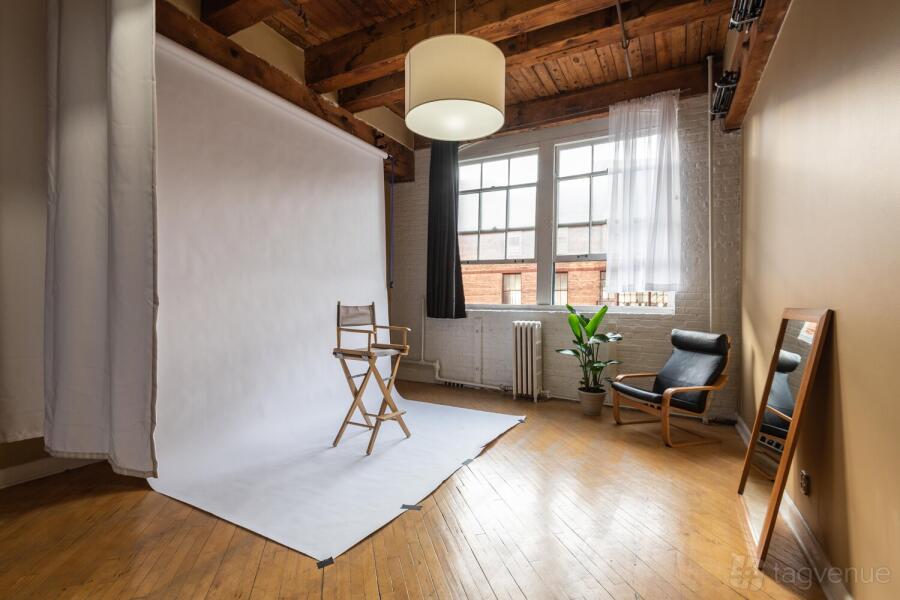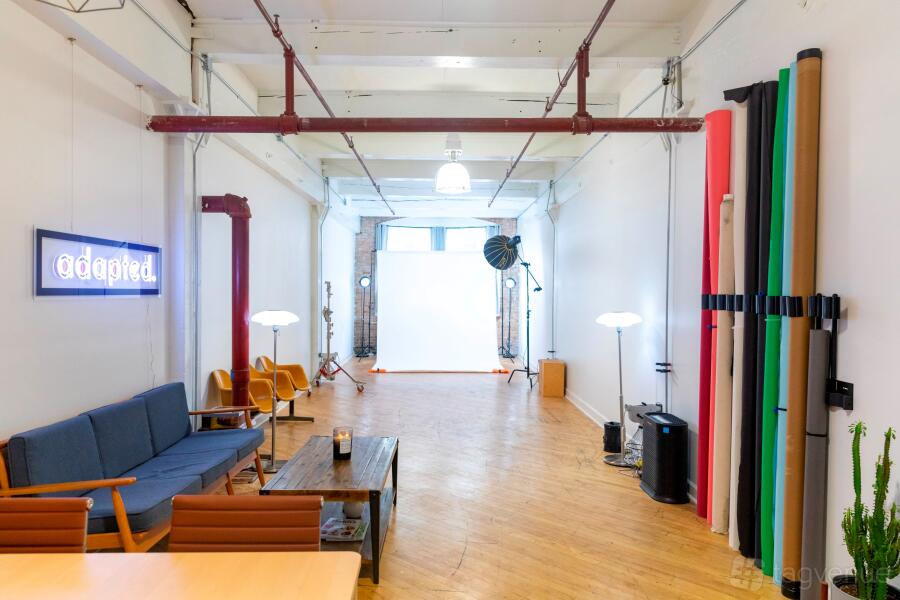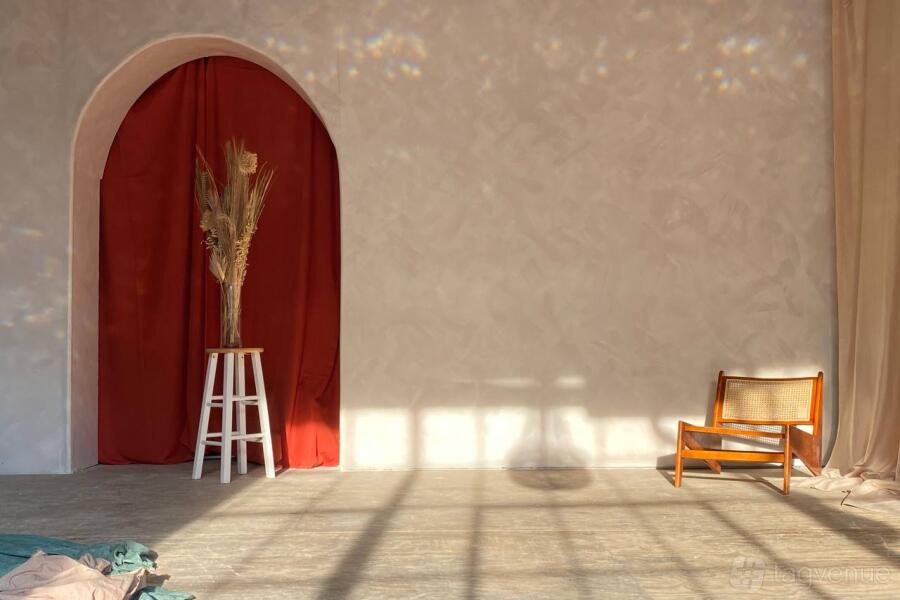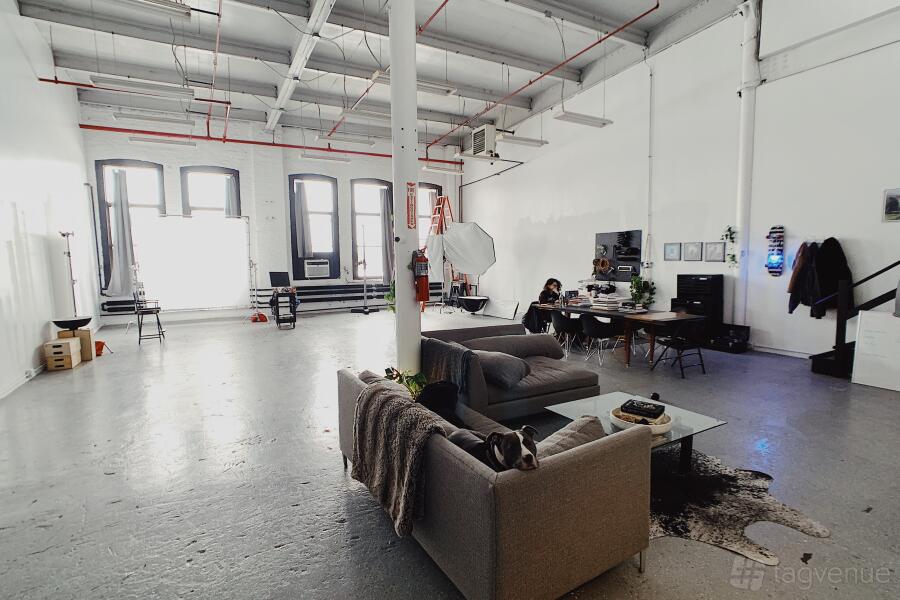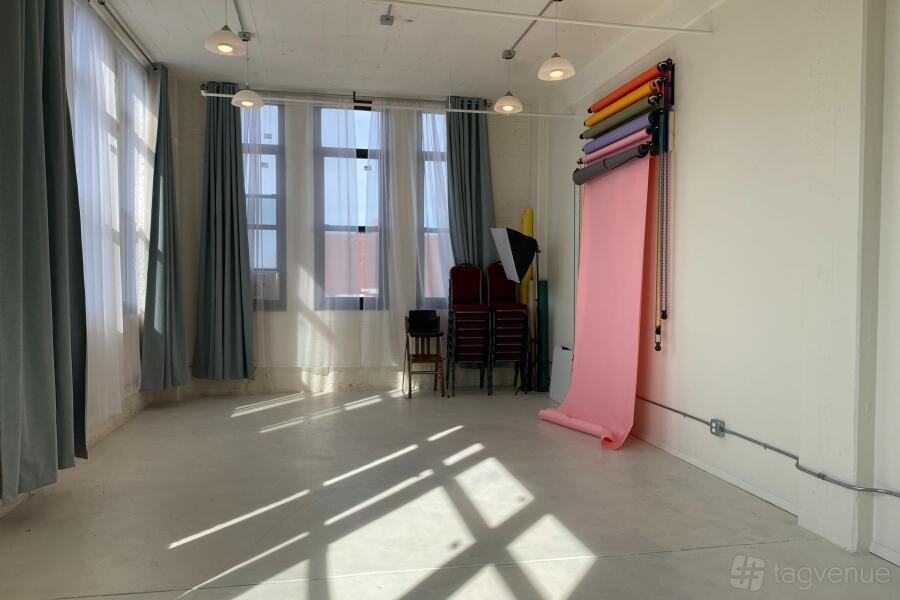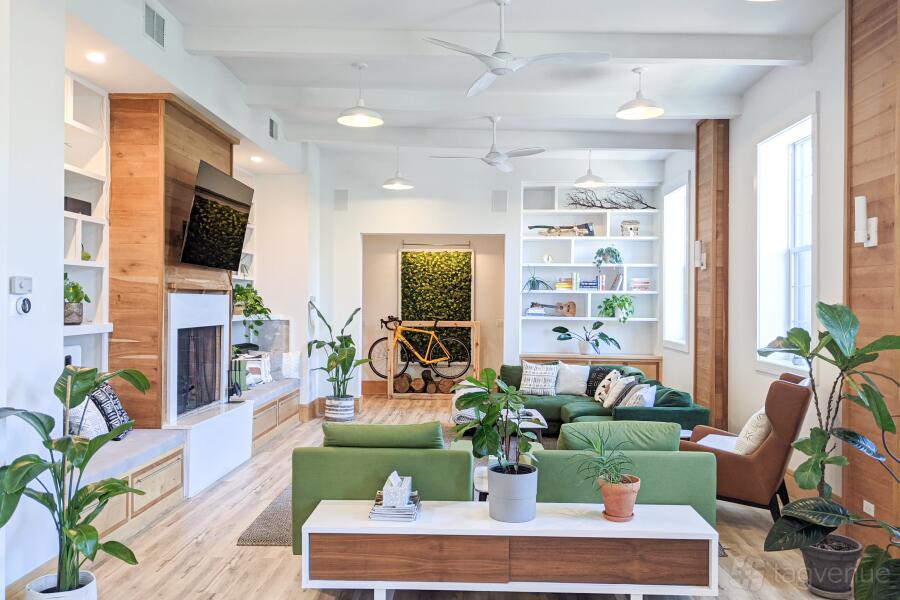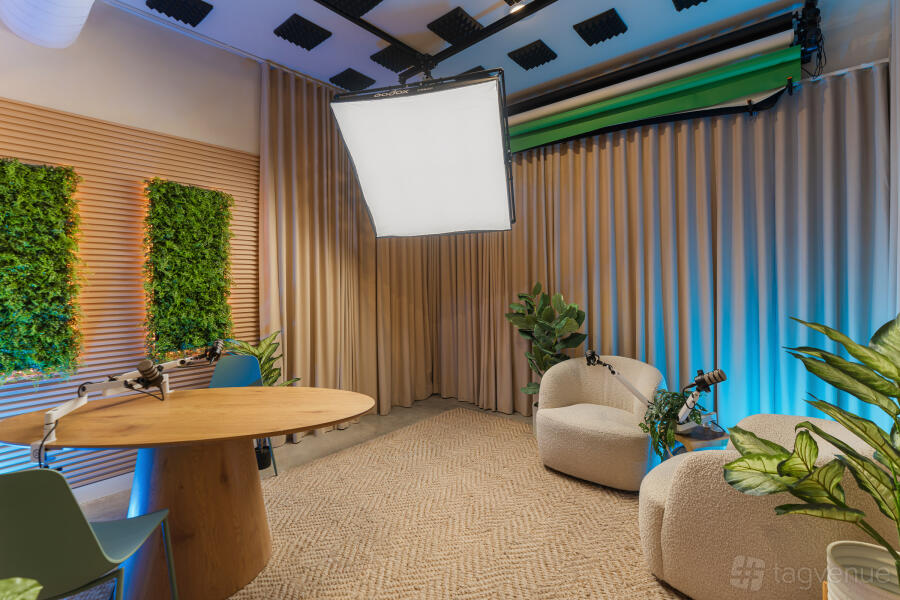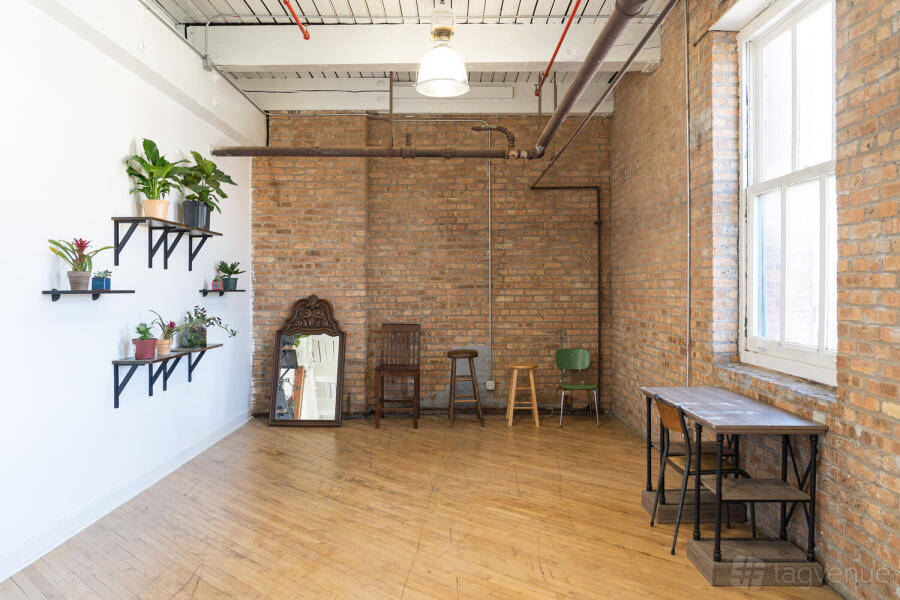Top Photo Studios in Chicago, IL
Welcome to Chicago, a place in the U.S. famous for its arts, cuisine, diversity, Jazz music, and many other things. This locus will undoubtedly inspire you with its big-city culture and spectacular landscapes. A blend of both worlds, Chi-town has some of the best photo studios for both budding and professional photographers. Looking for a luminous loft studio with some monstera for your next editorial? You got it! Planning a boudoir shoot in a vintage studio? Look no further. With the help of Tagvenue’s curated list of photo studios, finding the ideal location in the city is child’s play!
-
from $80
hire fee / per hourBook nowPhoto & Film Studio
20 guestsCreate at UpscaleLower West Side, Chicago, ILNNiki J.
“I liked the natural light and quiet space.” -
from $50
hire fee / per hourBook nowBright Sunny CYC Wall Loft
15 guestsMikSpace ChicagoGarfield Park, Chicago, IL#Supervenue
JJoe S.
“I would HAPPILY book again - even this studio.” -
from $40
hire fee / per hourBook nowThe Studio
15 guestsLaunchpad StudiosGarfield Park, Chicago, ILWelcome to our studio at Launchpad Studios! This space is best used for video productions and photoshoots. We have a cyclorama wall thats well maintained. -
from $50
hire fee / per hourBook nowLumber Studio
10 guestsLumber StudiosLower West Side, Chicago, ILOur original space, dubbed “Lumber Studio” is the perfect photography production space. We have 9 different colored paper backdrops for you to shoot with at no additional cost. -
from $40
hire fee / per hourBook now16ft White Cyc Wall
15 guestsLaunchpad StudiosGarfield Park, Chicago, ILWelcome to Studio B at Launchpad Studios Chicago, your versatile creative space for photography, videography, and content creation. Equip with a spacious 16ft x 12ft white cyc wall, Studio B offers a pristine backdrop for -
from $75
hire fee / per hourBook nowStudio
10 guestsAdapted.Lower West Side, Chicago, ILWe are a full-service photography/video studio that will take care of every detail for you. This space can be used for video productions, small photoshoots, and small meetings as well. -
from $45
hire fee / per hourBook nowPhotography Studio
20 guestsComposite LogicGarfield Park, Chicago, ILThe studio is designed for experienced photographers and amateurs alike and is ideal for portraits, headshots, group photos, and product photography. Whether you need a place for a day shoot or you need a place to perfect -
from $55
hire fee / per hourBook nowLoft Spotlights & Neon Space
15 guestsMikSpace ChicagoGarfield Park, Chicago, IL#Supervenue
Also after booking you will get 2 video instructions - How to get in building and find studio space - How to use the equipment Furniture that you see on photos will be in the studio. -
from $125
hire fee / per hourBook nowRain Studio
50 guestsRain StudioUnited Center, Chicago, ILWhether it’s music video productions, photoshoots, or live events, Rain Studio is a versatile space capable of hosting your next creative endeavor. -
from $25
hire fee / per hourBook nowStudio 401-E
30 guestsGreen Shirt StudioLakeview, Chicago, ILMMarian C.
“Fun, only slightly terrifying, elevator!” -
from $125
hire fee / per hourBook nowStudio Area
15 guestsThe Rill HouseBridgeport, Chicago, ILThis studio space supports professional photography and video projects. We offer a curved white cyc wall that flows into a motorized backdrop system with green and black screen options. -
from $160
hire fee / per hourBook nowFilm & Photo Studio
25 guestsBright & Airy Gorgeous LoftEast Village, Chicago, ILLocated at 1845 W Division St, Chicago, IL 60622, this historical warehouse loft offers an ideal setting for meetings, production, and photography sessions.
- 1
- 2
- 3
- 4
Popular filters
Budget
Event Type
Area type
Venue type
Accessibility features
Secure One of Chicago's Best Small Photography Studios

FAQs about Top Photo Studios in Chicago, IL
In Chicago, prices of photo studios average $125 hire fee per hour. The cost depends on capacity, location, and equipment available. Some spaces may offer lower prices on certain days of the week, so make sure to keep an eye out for discounted options. You can find options that offer packages with crew or professional gear, which can also affect the booking costs. Here's a breakdown of price ranges in Chicago on Tagvenue (data from December 2025):
| From $75 | to $200 | hire fee per hour |
| From $1200 | to $1800 | hire fee per day |
You can always find complementary lights at multiple studios. Some studios might provide lights and modifiers at an additional cost. However, the good thing is that you can benefit from a variety of equipment and make sure to use the best equipment available when working with a studio.
Many photo studios in Chicago have everything you'll need for your shoot, from lights to costumes. Others may already have a specific decor in place for you to work with. You can find a range of furniture and props to work with, in various spaces.
As a client, you will usually be assigned a parking spot. However, your team and anyone working with you may need to hunt for pay or display parking spaces nearby.
Yes, most likely. Additional rooms, such as makeup rooms, changing rooms,, and kitchenettes, are frequently included in studios. Some studios may even provide you with a variety of creative spaces or studio styles to pick from. Because you've reserved the venue for a specific time frame, you'll almost certainly have free access to the makeup area.
The neighborhoods of Chicago are likely to impress you. This city has everything a creative mind could wish for, whether you prefer an urban ambiance or a laid-back neighborhood with a stunning view, this metropolis has it all. We recommend hiring a venue in Andersonville for its unique businesses and magnificent architecture, Hyde Park for its rich history, Logan Square for the finest cafes and parks, or Old Town for its locales if you want to wow your clients and establish your name as a photographer. Just keep a lookout for some fantastic venues in unusual places at very cheap prices!
Your Guide to Renting Photo Studios in Chicago, IL
Planning a photoshoot in Chicago? From clean daylight studios to edgy lofts and specialty creative hubs, the city has every kind of photo-ready space you could imagine, whether you're shooting product images, headshots, or editorial campaigns. Below, we highlight studio options based on style, size, and neighborhood so you can easily pick the right one for your project.
Bright, Daylight-Filled Photo Studios
Natural light is a photographer’s best friend—especially when you want to skip heavy lighting gear. These studios make the most of Chicago’s sunniest hours:
- Green Shirt Studio (Lakeview): A go-to for headshots and portrait sessions, this space is clean, quiet, and bathed in natural light. Only $25/hr.
- Logan Square Creative Studio (Logan Square): Minimalist layout and strong morning light make this studio ideal for lifestyle shoots. $49/hr.
- Create at Upscale (Lower West Side): With a bright open layout, this venue offers a flexible backdrop for fashion, food, or product photography. $80/hr.
- Rose Boutique Photography (Andersonville): Perfect for maternity or family portraits, this boutique space has warm tones and soft finishes. $75/hr.
Loft-Style & Editorial Studios
If your shoot calls for raw textures, wood floors, or industrial vibes, these studios are ready for more stylized, moody, or high-fashion work.
- The Photo Yard Studio (Humboldt Park): Open layout with flexible lighting setups, ideal for commercial and fashion content. $85/hr.
- North Logan Studio (Logan Square): A blank-slate loft with clean lines and space for small crews. $200/hr.
- Throop Studio (West Town): Spacious, versatile venue with a raw finish and great light, perfect for larger productions. $200/hr.
- AXM Studios (Lower West Side): A polished yet flexible space great for model tests, portraits, and indoor branding shoots. $175/hr.
- Mastermind Studios Inc. (Hermosa): Large enough for complex shoots but intimate enough for creative control. $135/hr.
Studios with Equipment & Creative Support
Need a space that’s more plug-and-play? These spots offer pro gear or lighting packages on request:
- Avenue J Photography Studio (Lower West Side): Clean layout and flexible lighting packages available. Great for small commercial shoots. $110/hr.
- Roc Star Studio (Garfield Park): A compact yet dynamic studio—great for smaller-scale sessions and includes some lighting gear. $85/hr.
- Lumber Studios (Lower West Side): Minimal setup, great for product shots or quick client sessions. Affordable at $50/hr.
- MikSpace Chicago (Garfield Park): Several rooms available at different price points, ideal for testing new setups or team shoots. $45–$55/hr.
- Composite Logic (Garfield Park): Tech-focused and no-frills studio with clean white walls, ideal for shooting against seamless backdrops. $45/hr.
Stylish Spaces for Portraits or Brand Work
These smaller studios are perfect for creative portraits, personal branding, or influencer shoots.
- The Rill House (Bridgeport): A warm, character-filled studio with a vintage touch. $125/hr.
- Kreative Cave (Jefferson Park): A compact creative space with just the right amount of flair for stylized portraits. $50–$95/hr.
- The Time Gallery (Wicker Park): Unique layout and intimate feel, perfect for conceptual sessions or editorial work. From $95/hr.
- The En Bronze (Grand Boulevard): Sleek, upscale interiors with polished backdrops. Great for beauty or influencer content. $100/hr.
Pro Tip: Make the Most of Your Photo Studio Session
- Always check what's included. Some studios offer backdrops, lights, or reflectors, while others are BYO.
- Time your booking. Daylight varies, so morning bookings get softer light, while midday brings crisp shadows.
- Arrive early. Give yourself buffer time to test light, position gear, and brief your model or client.
- Ask about support. Many hosts are photographers themselves and may offer assistance or setup advice.
People also search for
Photo Studios in Illinois
Photo Studios in other cities
Verified Reviews of Photo Studios in Chicago, IL
Page last updated in December 2025
To provide you with relevant information, our pages are refreshed using an algorithm that aggregates real-time data, including bookings, reviews, and venue updates.
